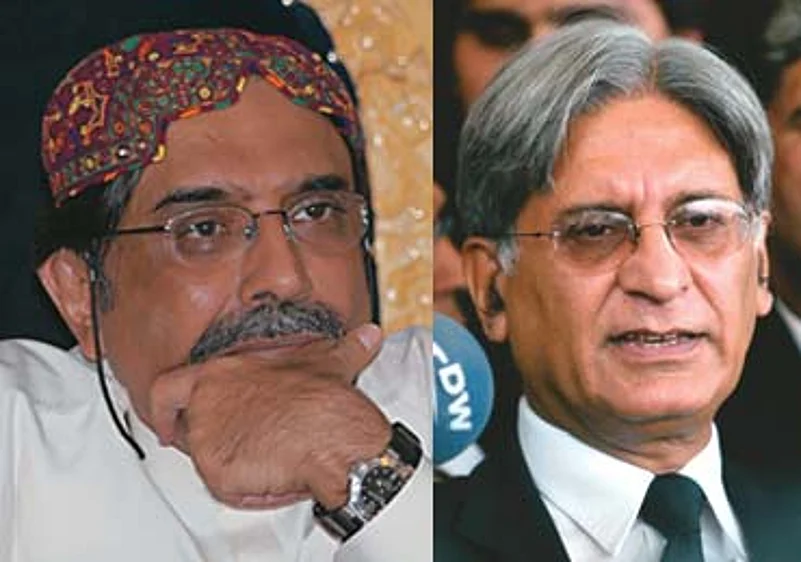
Benazir also, famously, presided over the looting of Pakistan. In 1995, during her rule, Transparency International named Pakistan one of world's three most corrupt countries. Bhutto and her husband, Asif Zardari—widely known as 'Mr 10 Per cent'—faced corruption charges in Pakistan, Switzerland, the UK, and the US.
Moreover, personally, as well as intellectually, she was a lightweight, with little grasp of economics; nor did she subscribe to any firm political philosophy. Benazir's favourite reading was royal biographies and slushy romances: on a visit to her old Karachi bedroom, I found stacks of well-thumbed Mills & Boons lining the walls; a striking contrast to the high-minded and cultured Indira Gandhi, in some ways her nearest Indian counterpart in their flawed centrality to their respective nations' histories.
Partly as a result of this lack of ideological direction, Benazir was a notably inept administrator. During her first 20-month-long premiership, astonishingly, she failed to pass a single piece of major legislation, and during her two periods in power she did almost nothing to help the liberal causes she espoused so enthusiastically to the Western media. It was under her watch that Pakistan's secret service, the ISI, helped instal the Taliban in Pakistan, and she did nothing to rein in the agency's disastrous policy of training up fundamentalist jehadis to do the ISI's dirty work in India and Afghanistan.
Benazir was a feudal landowner, whose family owned great tracts of Sindh. Real democracy has never thrived in Pakistan in part because landowning remains the principal social base from which politicians emerge. The educated middle class—which in India gained control in 1947—is in Pakistan still largely excluded from the political process. Behind Pakistan's swings between military government and democracy lies a surprising continuity of interests: to some extent, Pakistan's industrial, military and landowning elites are all interrelated and look after one another. The recent deal between Musharraf and Benazir, intended to exclude her only real rival, Nawaz Sharif, was typical of the way that the army and the politicians have shared power with minimal reference to the actual wishes of the electorate.
Today Benazir is being hailed as "a martyr for freedom and democracy", at least in the American networks. Yet in many ways she was the person who did more than anything to bring Pakistan's strange variety of democracy—really a form of 'elective feudalism'—into disrepute and helped fuel the growth of the Islamists.
Now, amid the mourning and shock, there is also some hope that Benazir's death could yet act as a wake-up call for the secular and moderate majority in the country. The PPP still contains many of Pakistan's most talented politicians—such as the leader of the lawyers' movement, the articulate Cambridge-educated Aitzaz Ahsan, or the stylish human rights activist, Sherry Rehman, who was a former editor of Pakistan's best newsmagazine, The Herald. If such people were to take over the party, rather than more Sindhi feudals like Benazir's corrupt husband, Asif Ali Zardari (today apparently the frontrunner at the beginning of the race), or the PPP's vice-chairman, Amin Fahim, they could open it up to the urban middle class, and steer the party into power as a genuinely democratic, meritocratic and moderate force for good.
If this were to happen, there is still a glimmer of hope that Benazir's death might yet strengthen democracy in Pakistan, and end the long and disastrous period of power-sharing between the country's landowners and their military cousins. But sadness at the demise of this courageous woman should not mask the fact that she was as much part of Pakistan's problems as its solution.
(William Dalrymple's new book, The Last Mughal: The Fall of a Dynasty, Delhi 1857, has recently been awarded the Duff Cooper Prize for History.)

















